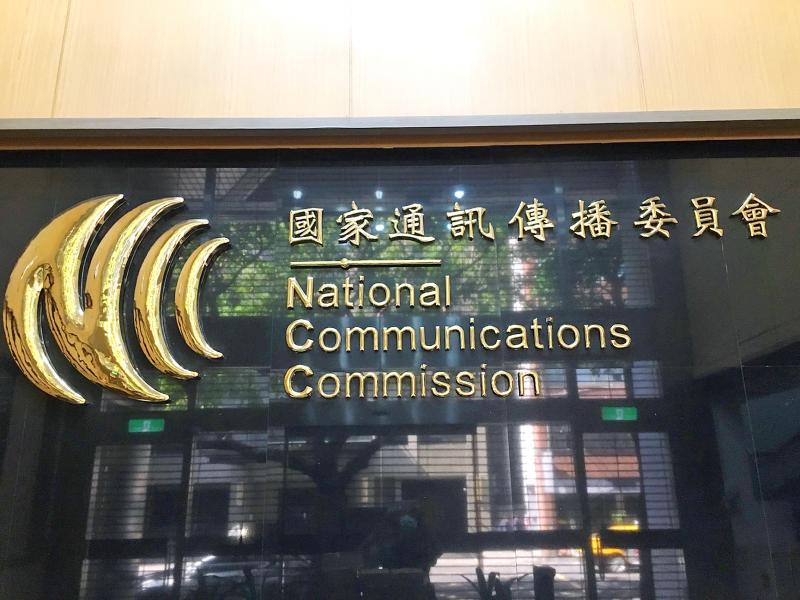Telecoms have been asked to provide solutions after poor reception was identified as the No. 1 source of consumer complaints that the National Communications Commission (NCC) received in the first quarter this year.
From January to March, the commission received 1,234 complaints related to telecom service, down from 1,281 during the same quarter last year, NCC statistics show.
However, 771 of the complaints in the first quarter were related to reception of telecom services, with 64.59 percent being about poor reception that users experienced at home or at work.

Photo: Yang Mien-chieh, Taipei Times
Meanwhile, changes in telecom service contracts and subscriber service were identified as the second and third-biggest sources of complaints, accounting for 11 percent and 8 percent respectively, the NCC said.
The three telecoms that received the most complaints were Chunghwa Telecom, Taiwan Star and Taiwan Mobile, with 32.41 percent, 19.53 percent and 18.48 percent of the complaints.
Consumers who complained about poor indoor reception often asked telecoms to reduce their monthly service fees or improve the reception immediately, the commission said, adding that some demanded that their service contracts be terminated.
The commission offered two possible explanations for poor indoor reception.
“Transmission of electromagnetic waves could be hindered by buildings or topography, depending on where base stations were installed,” it said.
Another reason might be that a telecom removed a base station after residents in the area complained about it, but failed to find a different location nearby to reinstall it, it said.
“We have asked telecoms to conduct tests at locations where a majority of complaints took place and offer solutions accordingly,” the NCC said. “If consumers complain about poor reception, telecoms are advised to give consumers a rebate or allow them to terminate service contracts early while they find ways to address the problem, such as quickly installing a new base station.”
Telecoms should inform consumers that they have a seven-day free trial period for any telecom service they plan to subscribe to, the commission said.
Telecoms are obligated to disclose their service coverage areas to consumers, it said, adding that such information should be available in their retail stores and on their Web sites.
Telecoms must also disclose exactly what their service entails based on the “Telecommunication Service Quality Items and Formats,” which was published on April 8 last year, the NCC said.

Left-Handed Girl (左撇子女孩), a film by Taiwanese director Tsou Shih-ching (鄒時擎) and cowritten by Oscar-winning director Sean Baker, won the Gan Foundation Award for Distribution at the Cannes Critics’ Week on Wednesday. The award, which includes a 20,000 euro (US$22,656) prize, is intended to support the French release of a first or second feature film by a new director. According to Critics’ Week, the prize would go to the film’s French distributor, Le Pacte. "A melodrama full of twists and turns, Left-Handed Girl retraces the daily life of a single mother and her two daughters in Taipei, combining the irresistible charm of

A Philippine official has denied allegations of mistreatment of crew members during Philippine authorities’ boarding of a Taiwanese fishing vessel on Monday. Philippine Bureau of Fisheries and Aquatic Resources (BFAR) spokesman Nazario Briguera on Friday said that BFAR law enforcement officers “observed the proper boarding protocols” when they boarded the Taiwanese vessel Sheng Yu Feng (昇漁豐號) and towed it to Basco Port in the Philippines. Briguera’s comments came a day after the Taiwanese captain of the Sheng Yu Feng, Chen Tsung-tun (陳宗頓), held a news conference in Pingtung County and accused the Philippine authorities of mistreatment during the boarding of

The Chinese Communist Party (CCP) is pushing for residents of Kinmen and Lienchiang counties to acquire Chinese ID cards in a bid to “blur national identities,” a source said. The efforts are part of China’s promotion of a “Kinmen-Xiamen twin-city living sphere, including a cross-strait integration pilot zone in China’s Fujian Province,” the source said. “The CCP is already treating residents of these outlying islands as Chinese citizens. It has also intensified its ‘united front’ efforts and infiltration of those islands,” the source said. “There is increasing evidence of espionage in Kinmen, particularly of Taiwanese military personnel being recruited by the

88.2 PERCENT INCREASE: The variants driving the current outbreak are not causing more severe symptoms, but are ‘more contagious’ than previous variants, an expert said Number of COVID-19 cases in the nation is surging, with the Centers for Disease Control (CDC) describing the ongoing wave of infections as “rapid and intense,” and projecting that the outbreak would continue through the end of July. A total of 19,097 outpatient and emergency visits related to COVID-19 were reported from May 11 to Saturday last week, an 88.2 percent increase from the previous week’s 10,149 visits, CDC data showed. The nearly 90 percent surge in case numbers also marks the sixth consecutive weekly increase, although the total remains below the 23,778 recorded during the same period last year,